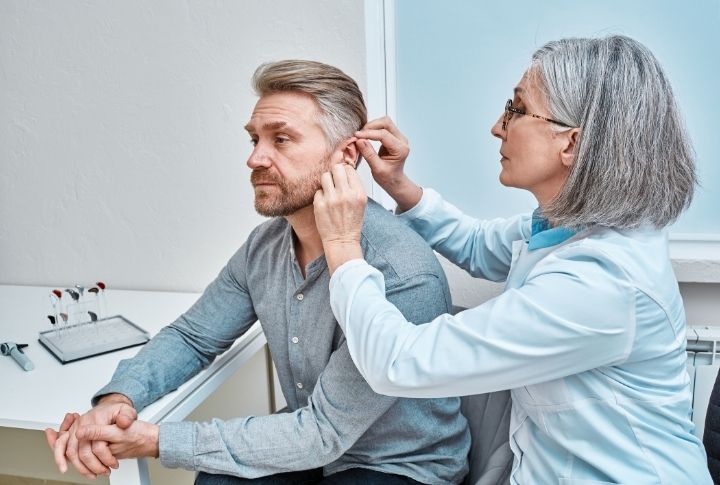
As men age, it’s common to notice a shift in their temperament. The once unflappable young man might grow more irritable with each passing year. But why is this the case? In this gallery article, we’ll delve into the 15 compelling reasons behind this transformation, exploring the complex relationship of physical, mental, and social factors. Swipe to find more.
Hormonal Changes

The process of andropause is similar to the hormonal fluctuations that occur during menopause in women. This phase is characterized by a gradual decline in testosterone levels, leading to mood swings, irritability, and even depression. The decrease in testosterone affects energy levels, libido, and overall sense of well-being, making men more prone to crankiness.
Chronic Pain and Health Issues

As men age, they are more likely to develop chronic health conditions such as arthritis, back pain, and cardiovascular diseases. Persistent pain and discomfort can significantly affect their mood and patience. Additionally, managing multiple health issues can be exhausting and frustrating, contributing to increased irritability.
Sleep Disruptions

Sleep quality often deteriorates with age. Men may experience conditions like sleep apnea, insomnia, or frequent urination at night, disrupting their rest. Lack of proper sleep leads to fatigue, which in turn affects mood and cognitive function, making it harder to cope with daily stresses.
Cognitive Changes

With aging, men’s brains undergo changes that can affect memory, attention, and problem-solving skills. Imagine trying to solve a puzzle, but someone keeps taking pieces away—that’s what it feels like when cognitive functions start to decline. Additionally, cognitive changes can make adapting to new situations or learning new things harder.
Decreased Physical Activity

Ever notice how your dad used to be the king of backyard football but now prefers to spectate from the sidelines? In addition to keeping in shape, physical activity enhances mood. During exercise, your body releases feel-good chemicals like endorphins, which can relieve anxiety and stress. So, when men become less active, they might not get the natural mood lift they used to rely on.
Retirement and Loss of Purpose

While often anticipated, retirement can also bring about a sense of loss. The end of a career can leave men feeling purposeless and undervalued. An absence of daily structure and decreased social interaction may cause feelings of loneliness and irritability.
Financial Concerns

Financial pressures can intensify with age, particularly as retirement nears and earning potential decreases. Economic uncertainties, like market fluctuations and unexpected expenses, can increase stress levels. Making financial decisions, from investments to budgeting, can lead to heightened frustration and anxiety.
Changes in Social Dynamics

As people age, social connections from work, friendships, and community may diminish. Adapting to new social norms and technologies can be challenging. Rapid advancements in communication platforms can feel overwhelming and isolating for older generations, leading to frustration and a sense of being left behind.
Loss of Close Members

Losing loved ones is a harsh reality of getting older, and it’s no wonder it makes men crankier. As friends, family members, and spouses pass away, the emotional toll can be immense. For many men, dealing with these emotions isn’t straightforward. They might struggle to express their feelings or find it hard to seek support.
Medication Side Effects

In order to manage various health conditions, older adults often take multiple medications. The side effects of many medications can have a negative impact on mood, including mood swings and anxiety. The challenge of managing complex medication regimens can also add to the crankiness.
Loss of Independence

When you’re used to being self-reliant, having to depend on others for basic things can feel like losing a big part of yourself. This loss of control can definitely lead to crankiness as men adjust to a new way of living that feels limiting and unfamiliar.
Sensory Decline

Hearing loss and vision impairment are common with aging. These sensory declines can lead to frustration in social situations, misunderstandings, and a sense of isolation. Struggling to communicate effectively can significantly impact mood and patience.
Diet and Nutrition

Digestive issues become more common with age, adding to the discomfort. Making healthier food choices and staying hydrated can help boost mood and keep irritability at bay. But let’s face it, sticking to a balanced diet can be challenging, and the frustration of managing it all can make anyone a bit grouchy.
Cultural and Generational Shifts

Imagine trying to navigate a world where everything you know seems outdated. It’s like trying to read a book in a foreign language! The world changes fast; technology advances, social norms evolve, and new slang pops up seemingly overnight. Keeping up with these shifts can feel overwhelming and alienating for older men. They might feel out of touch or misunderstood by younger generations, leading to annoyance.
Reduced Attractiveness

For those who pride themselves on their appearance, wrinkles, graying hair, and more can be challenging to accept. It’s not just vanity, but reduced attractiveness can impact social interactions and self-worth, making it a critical factor in why men might get crankier with age.


Comments
Loading…